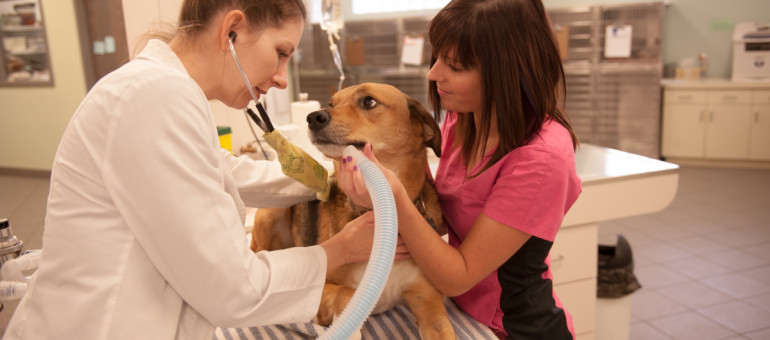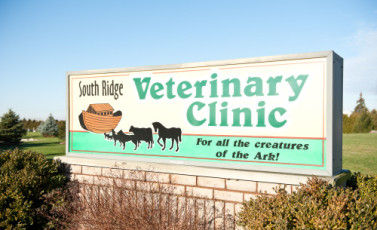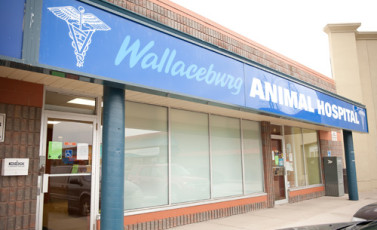
Emergency care is offered after regular hours at the Walker Road Animal Hospital 519-972-9000 in Windsor or London Regional Veterinary Emergency 519-432-3300. We are fortunate to have 2 emergency veterinary hospitals to see our patients after hours for emergencies.
Call one of our locations to receive your emergency care options:
- Blenheim: 519-676-4968
- Chatham: 519-352-3630
- Ridgetown: 519-674-3964
- Wallaceburg: 519-627-8522
Care starts with a thorough physical exam by the attending veterinarian. Taking your pet’s history and concerns into consideration, our veterinarian will make recommendations regarding diagnostics and treatment so that you can make an informed decision regarding your pet’s care. If your pet is required to stay at the hospital overnight, we have a veterinarian technician in the hospital offering care as needed.
Knowing what constitutes a true emergency and what does not can save you hundreds of dollars. Anything is worth at least a phone call if you’re not sure what’s wrong with your pet, because some things may require immediate attention by a veterinarian.
What could be an emergency?
- Respiratory problem: chronic coughing, trouble breathing, or near drowning
- Trauma, such as being hit by a car, even if the pet seems fine (internal injury may have occurred)
- Allergic reactions, such as swelling around the face or hives on the belly
- Suspected poisoning, including antifreeze, rodent or snail bait, or human medication; cats are especially sensitive to insecticides (such as flea-control medication for dogs) or any petroleum-based product
- Straining to urinate or defecate
- Seizure, fainting, or collapse
- Eye injury no matter how mild
- Vomiting or diarrhea (more than two or three times within an hour)
- Snake or venomous spider bites
- Thermal stress from being either too cold or too hot, even if the pet seems to have recovered (internal injury may have occurred)
- Wounds or lacerations that are open and bleeding, or any animal bite
Although some other problems may not be life-threatening, they may be causing your pet pain and should be taken care of without delay. Signs of pain include panting, labored breathing, increased body temperature, lethargy, restlessness, crying out, aggression, and loss of appetite. Some pets seek company when suffering, while others will withdraw. When in doubt, call us.
How to be prepared for an emergency?
Our after-hours emergency care takes place in either Windsor or London. Call your veterinary clinic to find out what arrangements are made for emergencies and be sure to know what number to call and which clinic to go to. Keep this emergency information easily available.
The First Aid Companion for Dogs and Cats by Amy Shojai is one of the best books on first aid for dogs and cats. When an animal is sick or injured at home, chances are you won’t have instant access to either a veterinarian or medical supplies. This book explains what needs to be done, how to do it, and what household items to use. (For example, think “stretcher” for that ironing board and “body wrap” for the plastic wrap to keep injured skin in place.)
Following is a list of websites that may assist you in the care of your pet. (We do not regularly monitor the content of these websites and are not responsible for the information supplied.)
- Poison Control www.aspca.org



